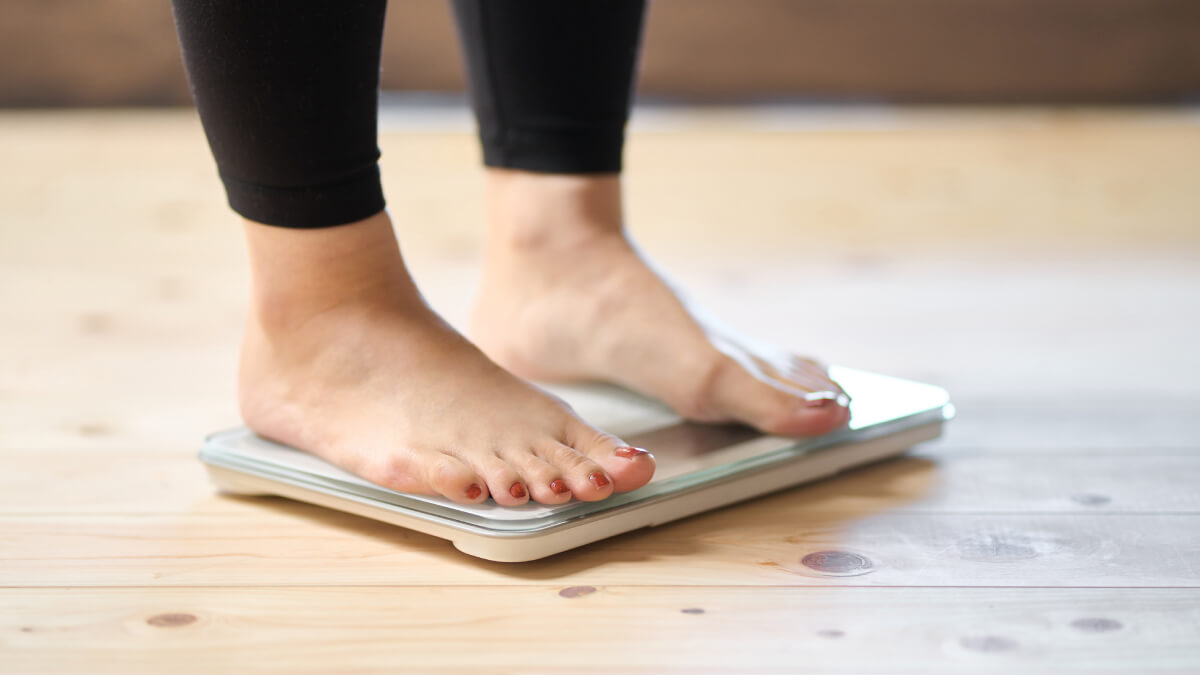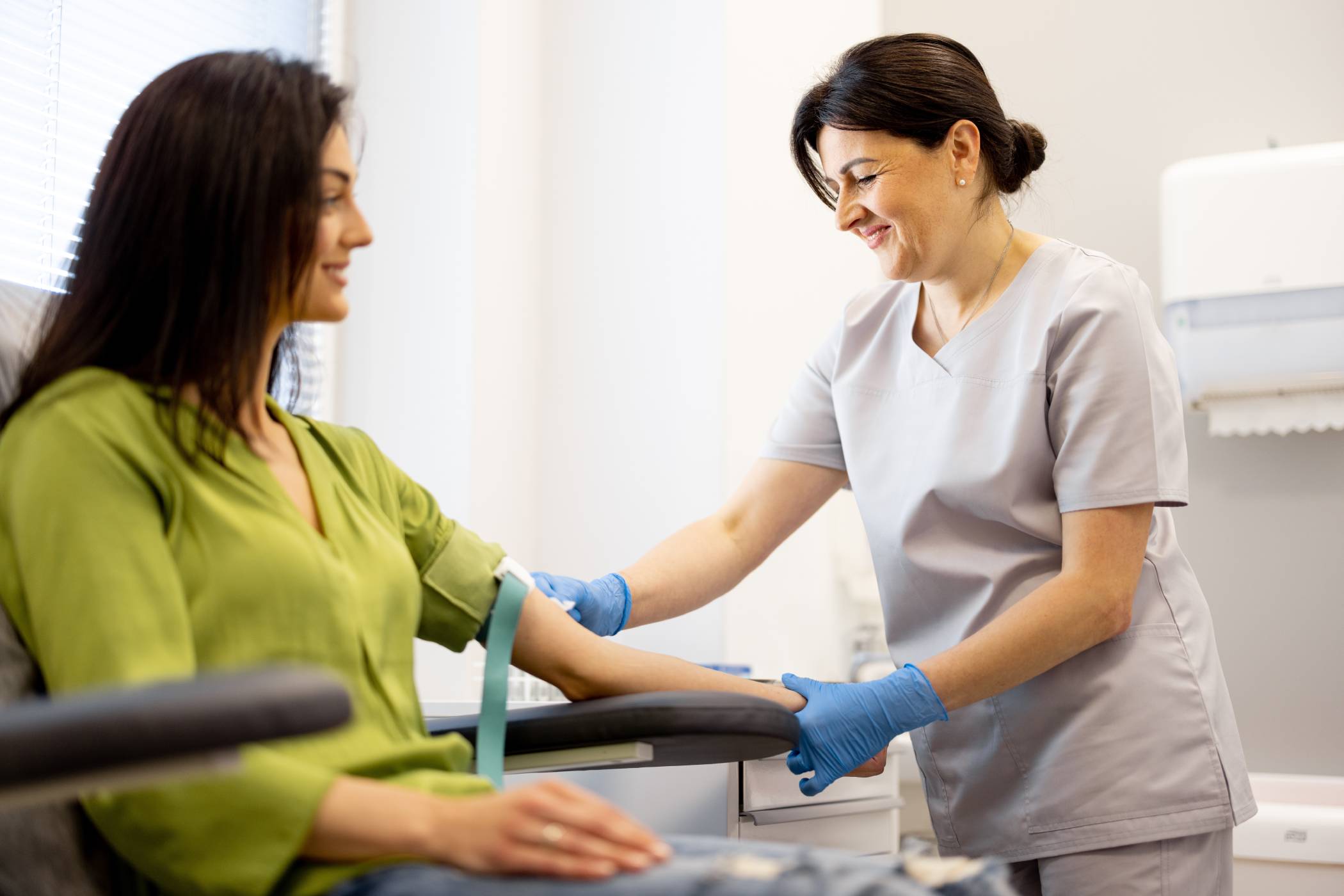As society’s understanding of the menopause increases and the stigma surrounding it decreases, those who experience it are far better placed to manage their symptoms. This shift in attitude is fantastic, but there is still much more to learn about this natural biological stage in the female body.
As a private GP in Milton Keynes, one of our most frequently asked questions is, ‘What is perimenopause?’. So, in this article, we will use our expertise to explain precisely that. From timeline to treatment, keep reading as we answer all of your perimenopause questions.
What Is Perimenopause And How Will It Affect Me?
Simply put, the perimenopause is the stage leading up to the menopause. The name is Greek, with peri meaning ‘around’, pausis meaning ‘pause’, and men meaning ‘month.’ The menopause marks the end of the reproductive years, and the perimenopause is a natural transition to this phase. During perimenopause, your hormone levels change, and your ovaries start to produce fewer eggs. Once you have not had a period for over 12 months, you have officially reached the menopause.
- What Is Perimenopausal?
- When Does Perimenopause Start?
- What Are Perimenopausal Symptoms?
- How Long Does Perimenopause Last?
- Is There A Test For Perimenopause?
- Can I Get Pregnant During The Perimenopause?
- Treatment For Perimenopause

What Is Perimenopausal?
To be perimenopausal is to be displaying symptoms of the perimenopause. During the perimenopause, oestrogen and progesterone in the body begin to fluctuate and decline. These are the two main female reproductive hormones, and they play a key role in your menstrual cycle and overall health. It is normal to experience menstrual cycles that are inconsistent in length and several menopause-like symptoms, such as hot flushes, sleep problems and vaginal dryness.
While the perimenopause can be daunting, it is completely natural, and there are a number of ways you can prepare for it. These include:
- Eat plenty of fibre and healthy fats from fish, nuts, and seeds to improve your heart health.
- Include two or three portions of calcium-rich foods, like cheese or yoghurt, in your daily diet.
- Take a daily supplement of 10 micrograms of vitamin D each day to support bone health.
- Do moderate exercise for at least half an hour five days a week. Include strength-based exercises on at least two of these days.
- Maintain a healthy weight.
- Limit alcohol intake.
- Stop smoking.

When Does Perimenopause Start?
Perimenopause usually begins a few years before your last menstrual cycle, and it can be broken down into two stages:
Early Stage
Perimenopause typically starts between the ages of 40 and 44, but it can begin in some people in their 30s. This early stage is characterised by big changes in hormone levels, which can lead to changes in periods and changes in sexual desire.
Late Stage
The late stage of perimenopause usually occurs in individuals who are in their late 40s or early 50s. In this late stage, you may begin missing your periods entirely until they finally stop. About six months before menopause, your oestrogen levels will drop significantly, typically triggering symptoms like vaginal dryness and hot flushes, to name a few

What Are Perimenopausal Symptoms?
Perimenopausal symptoms often arise slowly over time. As a result, you may not notice them at first, or it may be difficult to put your finger on any particular symptoms. These are some of the most common perimenopausal symptoms:
Irregular Periods Or Heavy Bleeding
Your menstrual cycle may begin to change, and you might notice irregular or heavy periods. This is often the first noticeable sign of the perimenopause. Due to fluctuating levels of oestrogen and progesterone, your periods may become longer or shorter than usual, or you may skip your period altogether. You may also experience spotting between periods.
Hot Flushes
Also known as vasomotor symptoms, hot flushes are one of the most common signs of the perimenopause. They are sudden waves of heat across the upper body and face, sometimes accompanied by profuse sweating. They usually last a few minutes, and some people experience a rapid heart rate or chills.

Mood Changes
Those going through the perimenopause often experience changes in their mood, and they may find this affects their mental health. Depressive episodes, anxiety and low self-esteem can all be part of the perimenopause. One study suggests that those who rarely have anxiety are more likely to experience high anxiety during the perimenopause than those who have anxiety before the perimenopause.
Vaginal Dryness
Vaginal dryness or stubborn vaginal infections are common in the perimenopause. A decrease in oestrogen results in the vagina producing less natural lubrication, and the vaginal tissue becomes thinner and drier. This may cause discomfort and can impact your sex life.
Changes In Metabolism
Many people experience weight gain and changes in fat metabolism during the perimenopause. This is because lower oestrogen is associated with increased cholesterol, leading to an increased risk of heart disease and type 2 diabetes.

Brain Fog
Brain fog is characterised by changes in memory, focus, and concentration. It’s one of the most common perimenopause symptoms, but there is currently not enough data to understand exactly why. Oestrogen, progesterone, and testosterone all play a crucial role in cognitive function and memory, so fluctuations in these hormones may be the cause of brain fog. Alternatively, other perimenopause symptoms, like poor sleep, hot flushes, and mood swings, can all contribute to brain fog.
Sleep Disturbances
Sleep quality is often negatively impacted by the perimenopause. When hot flushes occur at night, you may experience night sweats. Additionally, lower progesterone levels are linked to difficulty falling asleep and staying asleep at night.
Incontinence
The pelvic floor often becomes weaker during the perimenopause, so you may experience bladder leaks. In the Study Of Women’s Health Across the Nation (SWAN), 68% of respondents reported experiencing urinary incontinence.
Osteoporosis
Oestrogen is partly responsible for keeping our bones strong and healthy. So, as it decreases during the perimenopause, your risk of developing osteoporosis increases. Osteoporosis is a loss of density in your bones, causing them to become more fragile.

How Long Does Perimenopause Last?
Perimenopausal symptoms usually begin years before your final period. Typically, the perimenopause lasts between 4-8 years. However, some people may only be in this stage for a few months.
Is There A Test For Perimenopause?
There is no single test to diagnose the perimenopause because the transition to the menopause is gradual, and symptoms can be hard to identify. Generally, the first indicator that you might be in the perimenopause is a change in periods.
Doctors diagnose the perimenopause by considering a number of factors, including symptoms, age, and health history. In rare cases, your doctor may order tests to check your hormone levels, but this is not usually necessary to diagnose the perimenopause.

Can I Get Pregnant During The Perimenopause?
It is possible to get pregnant during the perimenopause, but your fertility is likely to decrease as your ovarian function gradually declines. As your body transitions to the menopause, your ovaries will still release eggs for fertilisation, and ovulation can still occur, but it will be more irregular. The chance of pregnancy decreases with age anyway, so when coupled with the perimenopause, pregnancy becomes unlikely.
Treatment For Perimenopause
If your perimenopausal symptoms are beginning to interfere with your quality of life, get in touch with your healthcare provider. There are a number of treatments available to reduce the intensity of your symptoms and help you feel better. These are some of the treatments our private doctors in Milton Keynes can offer:
Hormone Replacement Therapy (HRT)
HRT is the most common type of perimenopause treatment. It involves replacing the oestrogen your body has lost during the perimenopause to restore your hormone levels. There are different types and doses of HRT, but your symptoms will likely improve with the right amount. Oestrogen can be provided as:
- Skin patches
- A gel or spray to put on the skin
- Tablets
If you have a womb, you will need to take progesterone to protect its lining from the effects of increased oestrogen.
Testosterone Gel
If HRT does not restore your sex drive, you may be offered testosterone gel or cream. Testosterone helps improve sex drive, mood and energy levels, but the amount your body produces declines with age. Testosterone gel can safely be used at the same time as HRT. Side effects of the gel are uncommon, but they can include acne and unwanted hair growth.
Oestrogen
Oestrogen treatments inserted into the vagina can help improve discomfort associated with the perimenopause. They can be inserted as a tablet, cream or ring. These treatments do not enter the bloodstream and only work where you put them. Oestrogen treatments have also been found to improve urinary symptoms caused by the perimenopause. Like testosterone gel, vaginal oestrogen is safe to use alongside HRT.

Get Support With The Perimenopause
Evidently, the perimenopause has an extensive impact on the health and well-being of those who experience it. Thankfully, as our understanding of this natural cycle improves, support is increasingly available for those who need it. If you are looking for diagnosis, treatment, or advice regarding the perimenopause, book a private GP appointment in Milton Keynes at our specialist menopause clinic. You will work with our industry-leading menopause consultant, Tracey Dennison, to reclaim your wellness and thrive during this significant transition. Get in touch with our team at Private Doctors MK, and start putting your health first today.




